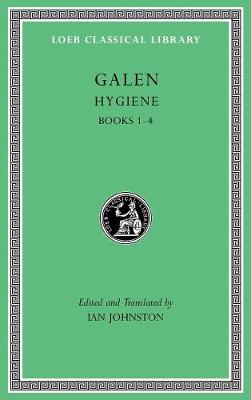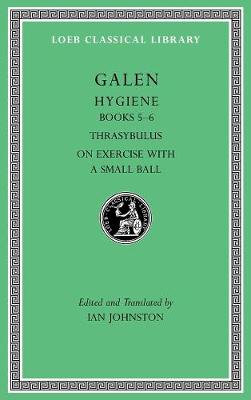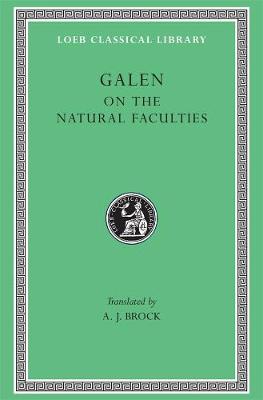Loeb Classical Library *CONTINS TO [email protected]
3 total works
Galen of Pergamum (129-?199/216), physician to the court of the emperor Marcus Aurelius, was a philosopher, scientist, medical historian, theoretician, and practitioner who wrote forcefully and prolifically on an astonishing range of subjects and whose impact on later eras rivaled that of Aristotle. Galen synthesized the entirety of Greek medicine as a basis for his own doctrines and practice, which comprehensively embraced theory, practical knowledge, experiment, logic, and a deep understanding of human life and society.
His treatise Hygiene, also known as "On the Preservation of Health" (De sanitate tuenda), was written during one of Galen's most prolific periods (170-180) and ranks among his most important and influential works, providing a comprehensive account of the practice of preventive medicine that still has relevance today. Also included in this two-volume edition are two shorter treatises on the relationship between health and wellness. Thrasybulus explores the theoretical question of whether hygiene is part of medicine or gymnastics, and in so doing delineates the interrelated roles of doctors and physical therapists. On Exercise with a Small Ball strenuously advocates that activity's superiority to all other forms of exercise.
Galen of Pergamum (129-?199/216), physician to the court of the emperor Marcus Aurelius, was a philosopher, scientist, medical historian, theoretician, and practitioner who wrote forcefully and prolifically on an astonishing range of subjects and whose impact on later eras rivaled that of Aristotle. Galen synthesized the entirety of Greek medicine as a basis for his own doctrines and practice, which comprehensively embraced theory, practical knowledge, experiment, logic, and a deep understanding of human life and society.
His treatise Hygiene, also known as "On the Preservation of Health" (De sanitate tuenda), was written during one of Galen's most prolific periods (170-180) and ranks among his most important and influential works, providing a comprehensive account of the practice of preventive medicine that still has relevance today. Also included in this two-volume edition are two shorter treatises on the relationship between health and wellness. Thrasybulus explores the theoretical question of whether hygiene is part of medicine or gymnastics, and in so doing delineates the interrelated roles of doctors and physical therapists. On Exercise with a Small Ball strenuously advocates that activity's superiority to all other forms of exercise.
If the work of Hippocrates is taken as representing the foundation upon which the edifice of historical Greek medicine was reared, then the work of Galen, who lived some six hundred years later, may be looked upon as the summit of the same edifice.
He was born in Pergamum 129 CE, and both there and in other academic centres of the Aegean pursued his medical studies before being appointed physician to the Pergamene gladiators in 157. Becoming dissatisfied with this type of practice he emigrated to Rome, where he soon won acknowledgement as the foremost medical authority of his time and where, with one brief interruption, he remained until his death in 199.
Galen's merit is to have crystallised or brought to a focus all the best work of the Greek medical schools which had preceded his own time. It is essentially in the form of Galenism that Greek medicine was transmitted to after ages.


